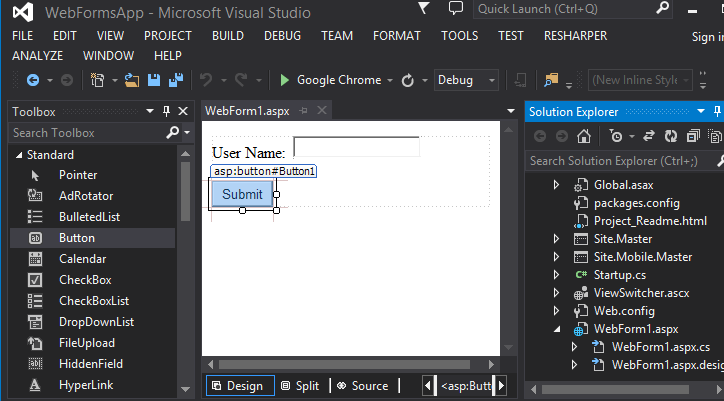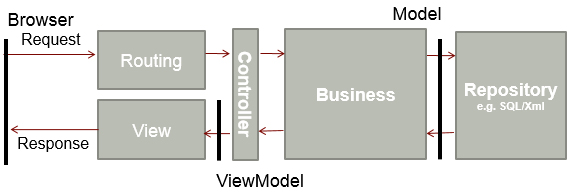ASP.NET Web Forms and MVC both have their pros and cons. Below I have them outlined.
ASP.NET Web Forms
Web Forms is a visual approach for web development using a drag-n-drop, event-driven model.
Advantages
- Rapid Application Development (RAD)
- Feature-rich server controls
- Data binding
- Higher level of abstraction over a stateless web. Simulates statefulness with support for ViewState.
- Smaller learning curve for WinForm developers
Disadvantages
- Undefined Application Architecture with lack of Separation of Concerns (SoC)
- Limited control over HTML
- Complicated page life cycle with performance issues
- Hard to keep up with fast evolving web platforms without expensive 3rd party control updates or waiting on Microsoft updates
- Not a good technology for designers who like working with HTML directly
- Limited support for testing
ASP.NET MVC
MVC is a framework for building web applications using the Model-View-Controller architectural pattern. This pattern helps you create applications that separate the different aspects of the application, while providing a loose coupling between these elements.
- Model – handles the logic for the application data
- View – handles the display of the data
- Controller – handles user interaction, works with the model, and selects a view to render that displays UI.
Advantages
- Separation of concerns (SoC)
- Full control over HTML
- Follows the stateless architecture of the web
- You actually get to learn how the internet really works. You learn about HTML and not about some abstractions that hide everything from you.
- ViewModels remove the need to do manual control binding which eliminates many errors related to binding
- Supports multiple view engines
- Integrates well with JavaScript frameworks
- No ViewState (the size of your pages are much smaller)
- Page life cycle is simpler and more efficient
- RESTful URLs that enables Search Engine Optimization (SEO)
- Highly testable
Disadvantages
- Steeper learning curve
- Requires knowledge of multiple technologies
- Lack of pre-built controls
- Increased development time
Conclusion
Having worked with both, I have found MVC better for more scaleable and maintainable applications. The biggest downfall for Web forms is the tight coupling it creates. But for small applications and prototypes, Web Forms can be considered a viable option.


Speak Your Mind